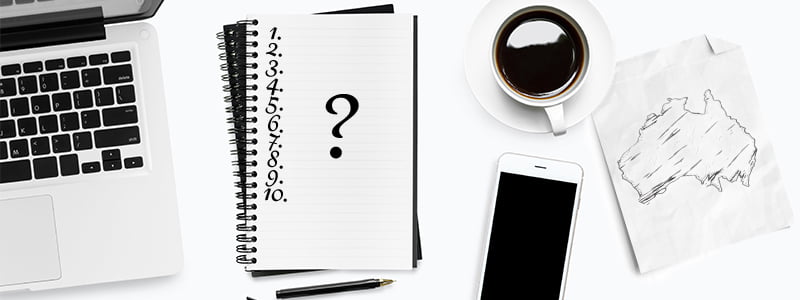The process of setting up an Australian company opens great new opportunities. There is a lot of great support from the government & the community. Here’s a list of factors you should consider to setup an Australian company.
Setting up a Subsidiary Company
Formation of a Pty Ltd company is relatively fast & inexpensive with no minimum capital requirements. It requires at least one Australian resident director but the shareholder doesn’t have to have to be based in Australia.
GST registration is mandatory for projected turnovers above $75,000.
You may also need a tax file number (TFN), Australian business number (ABN) and Australian Company Number (ACN). Substituted Accounting Period applications can be made to align the tax year with your overseas headquarters.
Tax rates for companies is generally 27.5% unless your aggregated turnover is over $50m.
Setting up a Branch
Where a subsidiary isn’t required, a branch might be preferable instead.
This requires registration with ASIC to obtain an ARBN, along with appointing a local agent and having an Australian registered office to receive ASIC postal correspondence.
Australia can only tax the profits of a foreign company if it carries on its business in Australia through a “permanent establishment” in Australia. A permanent establishment is, generally, a fixed place of business other than a storage or display facility.
Where to set up
When setting up up your Australian startup, location can be important.
The three main hubs for startup activity in Australia are:
Sydney – perhaps the largest collection of startups, along with the support of government – particularly at the Sydney Startup Hub with over 2,000 tenants.
Melbourne – the second largest ecosystem with several prominent co-working and startup support networks here.
Brisbane –perhaps the most supportive state government incentives particularly with Business Development Fund and HotDesQ programs.
Employment
Contractor or Employee?
Employees of your Australian Startup are entitled to leave (personal and annual), superannuation and PAYG Withholding deducted from their pay. But most employers also entitled to 6-12 months probation where you can dismiss without reason.
Contracting (self-employed) individuals manage their income tax, super and have greater control over their business.
ATO and employment tribunals consider the subjective facts behind the relationship when reviewing the status – i.e. is the employee running their own independent business, are they paid from project to project?
Employees should be entered in the Single Touch Payroll system, along with quarterly super payments and annual PAYG Payment Summary statements.
Work Visas
There are a few options available for founders wanting to do business in Australia.
Business Innovation & Investment Visa (subclass 188)
- Targeting entrepreneurs with
- an innovative idea for a new product, service or business
- third party funding &
- nominated by state government or Austrade
Allows commercialisation of a product or service or development of a business in Australia.
Business Innovation and Investment Visa (subclass 888)
This is the second step towards permanent residency after holding the subclass 188 visa.
Temporary Work Visa (subclass 457)
Requires sponsorship by an approved business for the given salary threshold and the worker must have the minimum skills to fill a position the approved business nominates.
Bank Account
Opening an AUS Bank Account can take 1-2 months depending on whether you have a local resident director assisting you.
Director & shareholders with over 25% shareholding and signatories often need to submit 100 points of ID with certified copies often required from consulate.
The major four banks all require visits to the bank to establish the account.
Government Startup Incentives
ESIC – Investors that make an eligible investment in an ESIC can receive a 20% non-refundable tax offset on their investment and a 10-year capital gains tax reduction for any eligible investment held for at least 12 months.
Annually the investment amount is capped at $200,000 per investor.
ESVCLP – Investors in an ESVCLP receive 10% tax relief that is proportionate to the investment in the fund.
Employee Share Schemes – Where ESS is available to their staff and meets the startup criteria, the shares or options will only be taxed when they make a financial gain (i.e. sell the shares). Employees won’t be taxed when the startup issues the options or shares or upon an exercise of options.
R&D Tax Incentive
If your Australian startup is pursuing innovative technology, then the R&D Tax Incentive is a big boost to your R&D spend in Australia. Eligible companies may be eligible on up to 43.5% in tax offsets on their AUS based salaries, contractors and consumables used while conducting the R&D, and is often paid back as cash after lodging the tax return.
Entrepreneurs Programme& State Programmes
- This provides startup support at the national level through;
- Financial support for product commercialisation – matched funding up to $1 million
- Funding support for incubators
- A dedicated network of experienced founders and advisors
State Support
NSW –
MVP Grant – matched funding up to $25,000 to support your innovation.
Techvouchers – supporting collaboration between your business and given universities with up to $15,000
QLD –
Business Development Fund – matched co-investment between $125,000 and $2.5m in Queensland based businesses.
Intellectual Property
Trademarks – range from $150-500 going via IP Australia’s website or more via a legal professional.
Patents – Innovation patents takes around 1 month to process and lasts for 8 years. Standard patents takes over 6 months to process and lasts for 20 years.
Navigating the Australian business ecosystem is a time-consuming task but having the right advisors on your side makes all the difference. If you’re considering setting up an Australian startup with your innovative business, reach out to Fullstack to setup your company today.
Was this article helpful?
Related Posts
- Setting up a Subsidiary Company in Australia
Establishing a presence in Australia as a foreign business is a complicated process. Foreign business…
- Startup Accounting Policies
Startups often have unique business models which can raise difficult questions about the most appropriate…
- Equity Crowdfunding in Australia
Crowdfunding is making some big waves in recent times - we cover why many founders…
- Project Management for Startup Teams
Tired of your ad-hoc spreadsheets or multiple ways of keeping track of projects that don't…

















